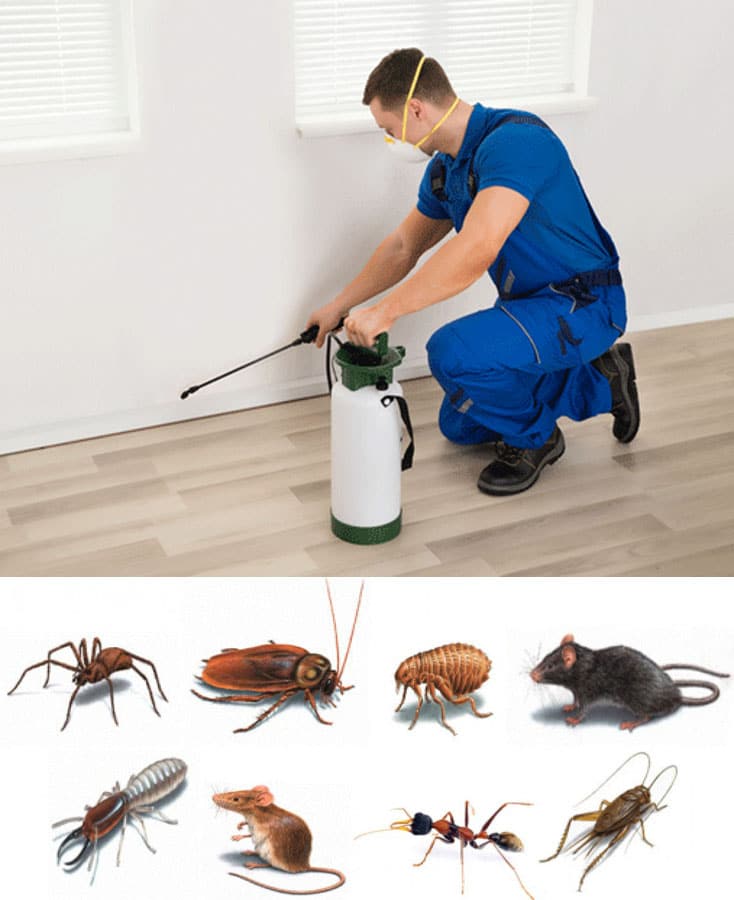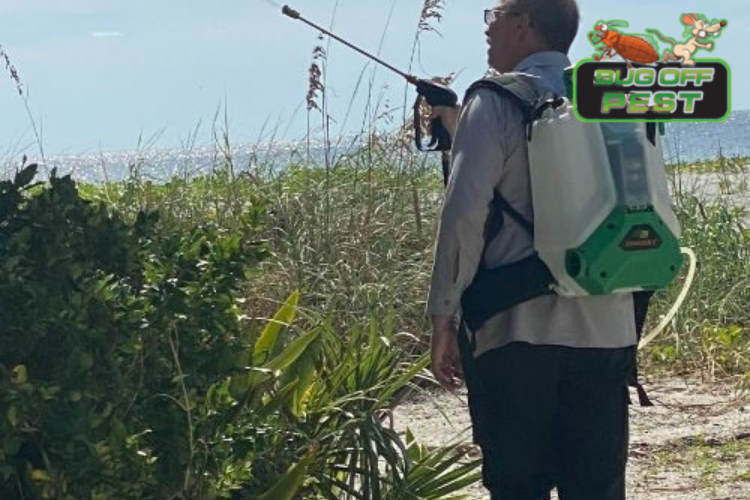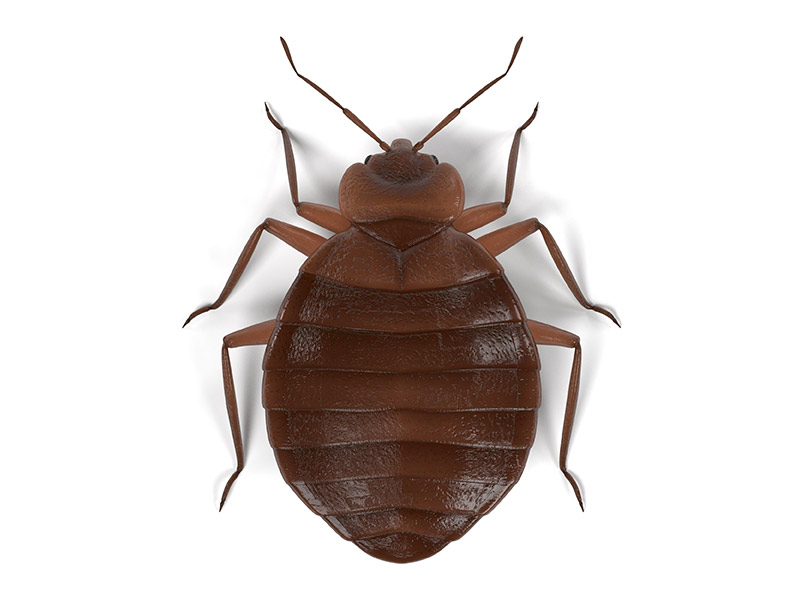Effective Pest Control in Port Charlotte for a more comfortable living space.
Effective Pest Control in Port Charlotte for a more comfortable living space.
Blog Article
Checking Out Ingenious Strategies and Products for Efficient Bug Control
The landscape of bug control is advancing, marked by the emergence of ingenious techniques and products developed to enhance efficiency and sustainability. From clever catches geared up with sophisticated tracking systems to organic approaches that use natural predators, these advancements offer a standard change in just how we come close to pest management. In addition, green chemical options and scent interruption methods offer targeted services that line up with ecological stewardship. As the market comes to grips with these growths, a closer exam discloses not only their implications but additionally the possible difficulties that might develop in their execution.
Smart Traps and Keeping Track Of Equipments
How can modern technology boost pest administration? One significant development is the growth of smart catches and checking systems, which provide real-time data and analytics for efficient pest control. These systems use sensing units and cordless innovation to spot pest activity, signaling home managers and bug control specialists to invasions before they intensify.
Smart traps are geared up with features such as lure terminals that draw in pests and catch them effectively. These traps can be checked from another location, permitting prompt interventions and lessening the need for considerable chemical applications. In addition, the assimilation of maker understanding formulas makes it possible for these systems to set apart in between target bugs and non-target species, boosting the accuracy of insect control steps.
In addition, the information gathered from wise traps can be examined to identify patterns in insect behavior and ecological elements adding to invasions (Pest Control in Port Charlotte). This information is indispensable for creating targeted bug management techniques customized to specific settings. By accepting smart catches and monitoring systems, pest control professionals can improve their functional effectiveness and minimize the environmental influence of bug administration, inevitably causing safer and more sustainable practices in the sector
Biological Parasite Control Methods
Making use of all-natural killers and parasites, organic insect control methods provide an ecologically pleasant alternative to chemical treatments. This approach involves the introduction or improvement of specific microorganisms that can naturally regulate insect populaces, consequently decreasing dependence on artificial pesticides. Usual instances consist of the use of ladybugs to manage aphid infestations and parasitic wasps to target caterpillars.

Biological control can be classified right into three main methods: timeless, augmentative, and conservation. Timeless organic control involves importing all-natural opponents from the bug's native habitat, while augmentative control involves boosting the populace of existing natural enemies via launches. Preservation strategies concentrate on developing problems that support these useful organisms in the ecosystem.
The performance of biological bug control depends upon recognizing the complex interactions within ecological communities. It usually requires a detailed analysis of insect characteristics and the life cycles of both the pests and their natural adversaries. While biological techniques might not give prompt outcomes like chemical choices, they add to lasting pest administration and ecosystem health and wellness. As recognition of ecological issues grows, organic insect control methods are increasingly recognized for their sustainable duty in incorporated insect management programs.
Eco-Friendly Chemical Alternatives
Environment-friendly chemical alternatives offer a viable service for bug monitoring that decreases ecological impact while efficiently controlling bug populaces. These alternatives are stemmed from natural sources and are meticulously developed to target particular pests without damaging helpful organisms, making them a crucial element of sustainable pest control approaches.
Among the most reliable eco-friendly alternatives are plant-based pesticides, such as neem oil and pyrethrin, which are stemmed from the seeds and flowers of various plants. These compounds disrupt the life process of parasites, lowering their populaces without the harmful you can try this out results related to conventional chemicals find more - Pest Control in Port Charlotte. In addition, crucial oils like pepper mint and clove oil exhibit repellent residential properties, better enhancing their utility in parasite management

Furthermore, environmentally friendly chemical choices usually break down quicker in the environment, reducing the threat of dirt and water contamination. This characteristic aligns with the enhancing customer need for lasting practices in farming and city bug control. As research remains to advance, the growth of ingenious environment-friendly formulations will certainly additionally improve efficacy and expand application locations, enabling pest management specialists to take on greener, much more accountable methods in their methods while protecting human health and the setting.
Pheromone Disruption Strategies
One more ingenious technique in sustainable pest administration is the use of scent disruption strategies. These techniques exploit the natural chemical signals, or pheromones, that pests utilize for communication, specifically in breeding habits. By disrupting these signals, bug populaces can be effectively handled without considering harmful chemicals.
Scent traps are frequently utilized in this method. Over time, this can lead to a substantial decrease in bug populations.

Integrated Parasite Administration Techniques
Effective bug control often needs an extensive approach, and Integrated Insect Administration (IPM) methods provide a framework for achieving this goal. IPM incorporates various management techniques to reduce pest populaces while lowering reliance on chemical pesticides. This multifaceted technique begins with thorough monitoring and identification of bugs, enabling targeted interventions based upon certain bug pressures.
Cultural practices, such as crop rotation and cleanliness, play a crucial duty in protecting against bug facility. Organic controls, including all-natural killers and parasitoids, are employed to maintain insect populations at workable degrees. When needed, discerning chemical therapies are used, highlighting reduced toxicity to non-target varieties and the environment.
By employing this all natural strategy, IPM not just improves pest control effectiveness however also adds to lasting environmental balance. Eventually, Integrated Insect Monitoring represents a forward-thinking Check This Out solution that straightens agricultural efficiency with ecological stewardship, making it important in contemporary pest control approaches.

Verdict
In verdict, the integration of innovative methods and items for efficient bug control stands for a significant improvement in sustainable parasite management. Smart catches and monitoring systems, organic insect control approaches, eco-friendly chemical options, and pheromone disturbance techniques jointly improve the efficiency of pest administration methods.
Report this page